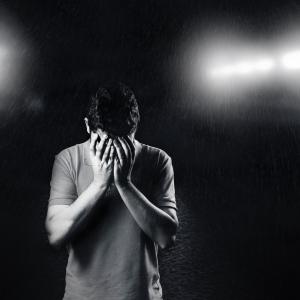Techniques To Find Quick Relief From Anxiety
Over the course of my 14 plus years of having an Anxiety disorder, I have read so much information and learned so many techniques for controlling anxiety and panic attacks. The techniques are very simple to use and will provide relief very quickly.
When you have an anxiety disorder, you literally do not know how to control your mind or body. You are in such a state of fear, and fright that every thought and reaction is concentrated on your physical symptoms, and dreadful thoughts. Living life in this way is not only terrifying, but it is unhealthy. Constant stress, worry, and tension can lead to medical problems later in life. Over time, the stress, worry, and tension takes a toll on you physically.
Changing Your Thought Process
Changing your thought process, and reactions to these thoughts are very important. If you don't, your negative reactions and response will intensify your symptoms. This will make it harder and harder to live a normal life every day. Your negative thoughts and symptoms will only become more frequent and become more debilitating. The exhaustion that comes with an Anxiety Disorder is very overwhelming. After I had a panic attack, I was mentally and physically worn out and tired. It took all my energy to get through a panic attack, and then I would feel even more fatigued waiting and wondering when the next panic attack was going to come.
Controlling A Panic Attack
When a panic attack hits you, the first thing you need to know and learn is to stop these emotions and feelings before they intensify. Panic attacks come on so quickly, and intensify so quickly, that you only have a matter of seconds to stop these attacks.
At the very moment you feel any symptom come into play, or have a feeling (or thought) that you believe will lead to a panic attack, the first thing you need to do is:
- Close your eyes (not hard, just softly)
- Take a few soft light breaths and let the thought, fear, or symptoms pass
- Don't fight it
Don't fight it, or try to push it away. The more you try to fight it, or fear your symptoms, the more control you will lose over how intensified they get. You must learn to accept it. As you sit (or stand) with your eyes closed and breathing softly, begin to take control. Take control of your thoughts. Feel the symptoms pass, but think, "I am fine! I am not crazy. This is real. I am in control. This is my body, and I am fine. I accept this, for now, it is just my mind playing tricks on me. I am fine."
Once you accept your fears and symptoms, you will, at the first thought or feeling of a panic attack, have control! Enough control to stop the panic attack and take control of your mind and body again.
Controlling Anxiety with Breathing
When I said above to breathe softly, I am sure some of you are thinking ok, “how do I do that?” Very simple. Use your belly (not your chest) to breathe. Inhale through your nose, and let it out through your mouth. Do this again and again, until you have control over your breathing. If you try breathing only through your mouth and trying to do this quickly, you are only making it harder to breathe, and harder to relax your chest muscles.
When you breathe in this way, it causes you to feel dizzy and disoriented. You must learn to slow your breathing down. This is where control comes in. While you are letting your symptoms pass, and not concentrating on them, you should focus on breathing correctly. Don't think of the negative. Don't fight the symptoms. Let the symptoms pass freely and concentrate on breathing slowly, and softly, at the first feeling of panic.
Controlling Anxiety With Relaxation
If, after your first panic attack, you are not promoting relaxation in your life, you will not be able to concentrate on yourself and your well being. There are many forms of relaxation. Mediation, Yoga, Music, the list goes on.
You should find something that you feel will be most relaxing for you. It is a must to find time to relax, reflect, and energize your mind, body, and spirit. Just going to a quiet place and simply closing your eyes, and not thinking about anything but yourself and your well being for at least 20 minutes a day is a must.
You may say you don't have time because you work, or you have children, or you are just to busy. These are life situations that you must work around. You would not go days without eating, because you were to busy. No, you find time to eat. You must schedule a time in your life every day to reduce stress, negative thoughts, and relax your muscles.
Controlling Anxiety in Life Situations
There is no known reason, in particular, what causes Anxiety Disorders and Panic Attacks, but there are several ideas regarding what can trigger Anxiety Disorders and Panic Attacks.
A few examples are:
- Genetics
- Chemical Imbalance
- Drugs
- Life Changes
- Stress and Tension
If you are experiencing Anxiety and Panic Attacks, you should reflect on your life now, and in the past. This may not be able to show you exactly what triggered your attack when it came on, but it can be a real eye opener in the way you lead your life.
Consider the situations in your life that are the most stressful, such as:
- Death of a Loved One
- Work
- Parenting
- Unhealthy Marriage/Relationship
- A Big Move at Work, or Home
- Health Problems
Review your life, and consider that there might be a stressful situation on the back burner. This way you can recognize it and possibly get help.
Sometimes just living an unhealthy life can be a trigger. Things Like:
- Bad Diet
- Smoking
- Anger
- Drugs
Any one of these could make you a candidate for an Anxiety Disorder. Please take the tips I have provided and really implement them into your life. I promise they will help. Again, I will say knowledge is power. The more you know about you and your anxiety disorder, the quicker the path to recovery.






